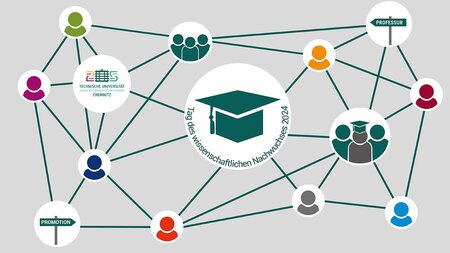Daniel Brand

-
Telefon:+49 371 531-38957
-
E-Mail:
-
Sprechzeiten:Nach Vereinbarung. Bitte kontaktieren Sie mich per E-Mail.
Forschungsschwerpunkte
- Kognitive Modellierung
- Prädiktive Modellierung menschlichen Schlussfolgerns
- Syllogistisches Schließen
- Informationssysteme
Lebenslauf
Berufserfahrung
- seit 02/2022: Wissenschaftlicher Mitarbeiter; TU Chemnitz; Professur Prädiktive Verhaltensanalyse
- 02/2021 - 07/2021: Wissenschaftlicher Mitarbeiter; Syddansk Universitet (SDU); Abteilung für Design und Kommunikation
- 07/2020 - 02/2022: Wissenschaftlicher Mitarbeiter; Albert-Ludwigs-Universität Freiburg; Cognitive Computation Lab
- 05/2017 - 06/2020: Wissenschaftlicher Mitarbeiter; Albert-Ludwigs-Universität Freiburg; Center for Cognitive Science
Bildungsweg und Qualifikationen
- 2016: MSc. Computer Science, Albert-Ludwigs-Universität Freiburg
- 2012: BSc. Computer Science, Albert-Ludwigs-Universität Freiburg
Lehre
- SS 2022: Dozent; Seminar: Kognitive Ergonomie; TU Chemnitz
- SS 2021: Assistent; Seminar: Cognitive Modeling; Cognitive Computation Lab; Albert-Ludwigs-Universität Freiburg
- SS 2020: Assistent; Seminar: Cognitive Modeling; Cognitive Computation Lab; Albert-Ludwigs-Universität Freiburg
- WS 2019/20: Assistent; Seminar: Cognitive Reasoning: Methods, Algorithms, and Statistics to Discern Human from Artificially Generated Data; Cognitive Computation Lab; Albert-Ludwigs-Universität Freiburg
- SS 2019: Assistent; Seminar: Cross-Domain Modeling of Human Cognition; Cognitive Computation Lab; Albert-Ludwigs-Universität Freiburg
- SS 2014: Tutor; Cloud Computing; Department for Databases and Information Systems; Albert-Ludwigs-Universität Freiburg
- SS 2012: Tutor; Software Engineering; Department for Software Engineering; Albert-Ludwigs-Universität Freiburg
Projekte
Aktuelle Projekte
- Automatische Prozessmodellgenerierung für Kognitive Modellierung
Vorherige Projekte
Software
- CCOBRA (Cognitive COmputation for Behavioral Reasoning Analysis) Framework: Online predictive modelling of human reasoning. [Website] [GitHub]
- PVA Webexperiment Tools: Sammlung an Vorlagen und Aufgaben für die einfachere Erstellung von Webexperimenten [GitHub]
- Syllogistic Task Predictor: Interaktive Prädiktions-Umgebung für syllogistisches Schlussfolgern [Website]
- pyTailorshop: Implementation der Tailorshop-Simulation in Python [GitHub]
Publikationen
- Riesterer, N., Brand, D., & Ragni, M. (2019). Predictive Modeling of Individual Human Cognition: Upper Bounds and a New Perspective on Performance. In Stewart T. (Ed.), Proceedings of the 17th International Conference on Cognitive Modeling (pp. 178–183). Waterloo, Canada: University of Waterloo. [PDF] [GitHub]
- Riesterer, N., Brand, D., Dames, H., & Ragni, M. (2019). Modeling Human Syllogistic Reasoning: The Role of "No Valid Conclusion", In Goel, A., Seifert, C., & Freska, C. (Eds.), Proceedings of the 41st Annual Conference of the Cognitive Science Society (pp. 953–959). Montreal, QB: Cognitive Science Society. [PDF] [GitHub]
- Ragni, M., Dames, H., Brand, D., & Riesterer, N. (2019). When Does a Reasoner Respond: Nothing Follows?, In Goel, A., Seifert, C., & Freska, C. (Eds.), Proceedings of the 41st Annual Conference of the Cognitive Science Society (pp. 2640–2646). Montreal, QB: Cognitive Science Society.
- Riesterer N., Brand D., Ragni M. (2018) The Predictive Power of Heuristic Portfolios in Human Syllogistic Reasoning. In F. Trollmann & A.-Y. Turhan (Eds.), KI 2018: Advances in Artificial Intelligence. KI 2018. (Vol. 11117, pp. 415–421). Cham: Springer International Publishing. doi: 10.1007/978-3-030-00111-7_35. [Poster] [GitHub]
- Riesterer, N., Brand, D., & Ragni, M. (2018) A Machine Learning Approach for Syllogistic Reasoning. In C. Rothkopf et al. (Eds.), Proceedings of the 14th Biannual Conference of the German Society for Cognitive Science (p. 54). [Poster]
- Kottlors, J., Brand, D., & Ragni, M. (2012). Modeling behavior of attention-deficit-disorder patients in a N-back task. In N. Rußwinkel, U. Drewitz, & H. van Rijn (Eds.), Proceedings of 11th international conference on cognitive modeling (pp. 297–302). Berlin: Universitätsverlag der TU Berlin.
Vorträge und Posterpräsentationen
- "Effect of Response Format on Syllogistic Reasoning" @ CogSci 2023. Online, July 2023. [poster]
- "Uncovering iconic patterns of syllogistic reasoning: A clustering analysis" @ 21th International Conference on Cognitive Modeling. Online, July 2023. [slides]
- "Do models of syllogistic reasoning extend to generalized quantifiers?" @ 20th International Conference on Cognitive Modeling. Online, July 2022. [slides]
- "Model-based explanation of feedback effects in syllogistic reasoning" @ 19th International Conference on Cognitive Modeling. Online, July 2021. [talk]
- "Unifying models for belief and syllogistic reasoning" @ 43th Annual Meeting of the Cognitive Science Society. Online, July 2021. [slides] [poster]
- "How usable is Galaxy? A usability evaluation of Galaxy" @ 2019 Galaxy Community Conference (GCC2019). Freiburg, Germany, July 2019. [poster]
- "Extending TransSet: An Individualized Model for Human Syllogistic Reasoning" @ 18th International Conference on Cognitive Modeling. Online, July 2020. [short slides] [talk]






